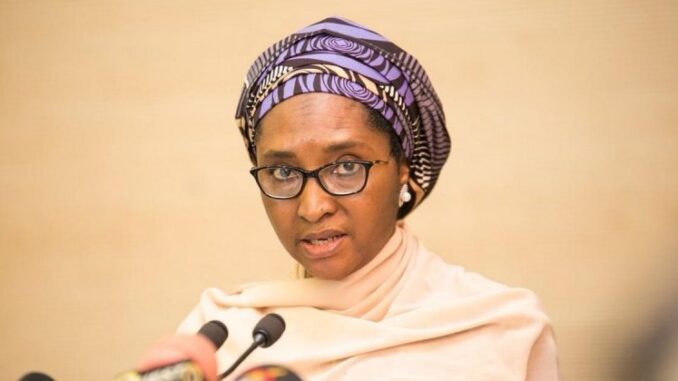
NIGERIANS living abroad bear an irksome, double burden in the process of remitting money home to their loved ones and for investment purposes. As explained in a new report by the World Bank, the cost of sending money to Nigeria from overseas nearly topped the $3 billion mark in the two years to 2021. This is among the highest in the world. In an economy that is contending with low foreign exchange inflows, the monetary authorities ought to take pragmatic measures to reduce the charges on Diaspora remittances.
A 2020 report by the United Nations Department of Economic and Social Affairs says Nigeria has a Diaspora population of 1.7 million, but the Nigerians in Diaspora Commission puts the figure at 15 million. To lift the lives of those at home, the migrants send billions of dollars in cash and goods to their relatives regularly. An estimated 70 per cent of this goes to consumption and 30 per cent to investment. In 2020, these groups remitted $17.21 billion. In 2021, remittances are projected to rise to $17.6 billion. This will total $34.8 billion in 2020 and 2021. These remittances are the second-highest in Africa behind the ones garnered by Egypt, the continental leader.
In many ways, remittances contribute significantly to the national economy. At $22 billion in 2017, Diaspora remittances to Nigeria were 7.4 times the size of the net foreign aid of $3.4 billion that year. It stood at 6.0 per cent of the gross domestic product. In 2018, remittances by Nigerians living abroad reached 83 per cent of the Federal Government’s budget at $23.63 billion or 6.1 per cent of GDP, says the financial consultancy, PwC. That was 11 times the foreign direct investment inflow in 2018. In other times, Nigeria recorded the highest remittances to GDP of 7.0 per cent in 2009 and the lowest at 3.8 per cent to GDP in 2014.
As averagely high as Nigeria’s figure is, the cost of remittance is another burden entirely; it is just unnecessarily expensive to send money to Nigeria. This limits the potential of the Nigerian economy to attract higher migrant remittances from which Egypt, the leader in Africa, secured $29.6 billion in 2020. For Egypt, that was a net gain of 10.5 per cent, the World Bank says. Other net gainers in Diaspora remittances in 2020 included Pakistan with $26.1 billion or 17.4 per cent and Bangladesh with $21.8 billion or 18.4 per cent. This was despite the global COVID-19 pandemic.
Conversely, remittances to Nigeria fell by a whopping 27.7 per cent from 2019 to 2020. For a country desperately in need of foreign exchange to service its import-dependent economy, that is a significant concern. It is partly traceable to the pandemic Nigeria that has ravaged the global economy for the past two years.
Yet, there is a bigger picture: the high cost of remitting money to Nigeria. While the global average of remittance was put at 6.8 per cent in 2020, Nigerians and other migrants in sub-Saharan Africa incurred an average cost of 8.9 per cent, or 2.1 per cent more. Thus, in 2020, Nigerians in the Diaspora paid at least $1.53 billion to remit $17.2 billion. At a global average of 6.4 per cent in the first quarter of 2021, the calculation is at least $1.41 billion to remit $17.6 billion. In two years, that totals $2.94 billion. It is a lot of funds that go to the financial system through excessive charges.
To reduce the cost of remittances, the monetary authorities should begin from the home front. Bank charges are nebulous and excessively high in Nigeria. From stamp duty to value-added tax, and account maintenance, the banking system imposes a lot of burden, extraneous charges on customers. It is nearly the same with migrant remittances. The World Bank says it can be as high as $16 to send $200 to Nigeria from overseas. This prolongs the exclusivity of the unbanked population, estimated at 64 per cent of adults in 2021.
To overcome this barrier and enhance Diaspora remittances to Nigeria, the Central Bank of Nigeria should devise creative measures. The World Bank recommends a host of measures that have helped mitigate the high cost of sending remittances in different economies. The first is that the remittance fee should be a low fixed amount, not a percentage of the principal. This way, those remitting small amounts will not bear a high cost.
More significant is a competitive environment between the banks and the mobile money transfer operators. Bank charges tend to be higher and mobile transfers cheaper. In this, a full banking licence might be waived for non-bank operators. By using this method, Mexico impressively witnessed a reduction of about 50 per cent in migrant transfer costs from $26 (for $300) in 1999 to about $12 in 2005. Nigeria should adopt solutions to boost remittances to its economy. The licensing of the telecom companies should be deepened by granting more licences to non-traditional banking institutions. Some fees can be cancelled altogether.
One area of interest in Nigeria is the currency that customers receive their funds. The regulator can prescribe a rule change to operators and banks to give recipients their funds in the original currency it was transferred initially rather than paying out the naira equivalent.
Currently, Nigeria’s business environment is overly harsh. It makes banks and other operators increase charges to stay afloat. Ultimately, the government should improve the general business climate by eliminating multiple taxes, provision of infrastructure and deepening technology like 5G and broadband penetration.
END

Be the first to comment